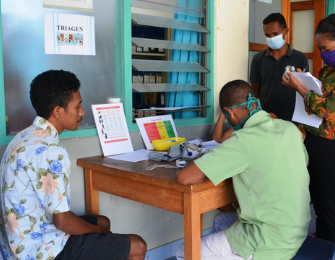Public health emergencies are caused by outbreaks of disease, natural disasters, contamination of the environment and conflict. Public health emergencies have devastating social and economic costs, and these costs are more acute in the world’s poorest countries.
The revised International Health Regulations (2005) (IHR) are binding on all WHO Member States and provide a regulatory framework for international management of public health emergencies.
The World Health Organization (WHO) coordinates the implementation of the IHRs and works with countries to build their capacities to detect, assess and report public health events. Australia works alongside and funds WHO to exercise its mandate in coordinating the IHR, and views this as fundamental for global health security.
WHO Health Emergencies Program (WHE)
The WHE leads and coordinates the international health response to contain disease outbreaks and provide effective relief and recovery to affected people. The WHE also works with countries and partners to prepare for, prevent, respond to and recover from all hazards that create health emergencies, including disasters, disease outbreaks and conflicts.
WHO Contingency Fund for Emergencies (CFE)
CFE is a replenishable fund, which facilitates cash flow in the initial three months of response to a health emergency, to contain it before other sources of funding arrive.
The Global Outbreak and Alert Response Network (GOARN)
GOARN is a network that pools human and technical resources for rapid identification, confirmation and response to outbreaks of international importance. Australia is funding two positions (one in WHO's Western Pacific Regional Office and one in its South East Asia Regional Office) to strengthen and expand this network in our region and to generate greater awareness within countries about how to access assistance.




